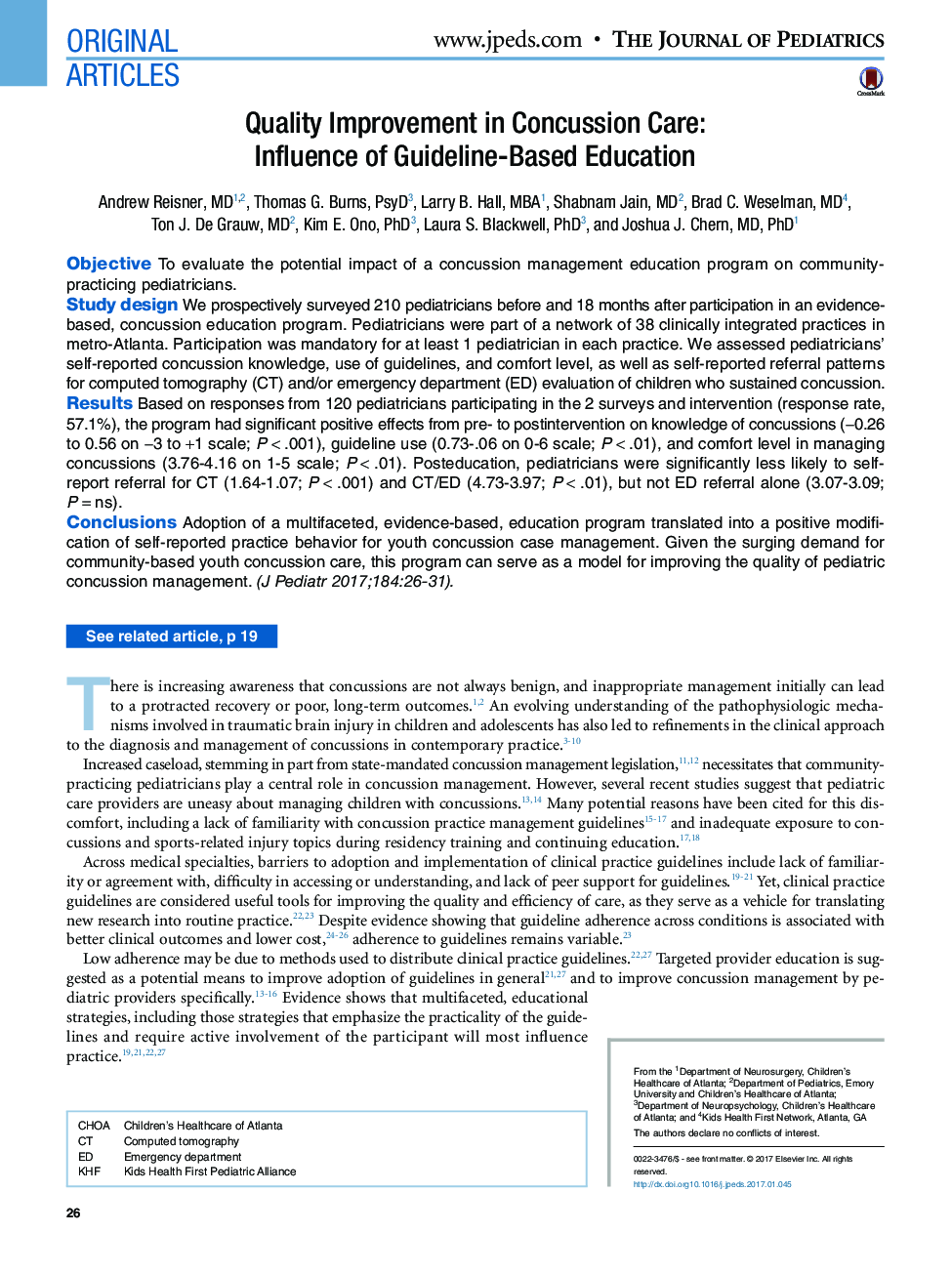| Article ID | Journal | Published Year | Pages | File Type |
|---|---|---|---|---|
| 5719572 | The Journal of Pediatrics | 2017 | 6 Pages |
ObjectiveTo evaluate the potential impact of a concussion management education program on community-practicing pediatricians.Study designWe prospectively surveyed 210 pediatricians before and 18 months after participation in an evidence-based, concussion education program. Pediatricians were part of a network of 38 clinically integrated practices in metro-Atlanta. Participation was mandatory for at least 1 pediatrician in each practice. We assessed pediatricians' self-reported concussion knowledge, use of guidelines, and comfort level, as well as self-reported referral patterns for computed tomography (CT) and/or emergency department (ED) evaluation of children who sustained concussion.ResultsBased on responses from 120 pediatricians participating in the 2 surveys and intervention (response rate, 57.1%), the program had significant positive effects from pre- to postintervention on knowledge of concussions (â0.26 to 0.56 on â3 to +1 scale; Pâ<â.001), guideline use (0.73-.06 on 0-6 scale; Pâ<â.01), and comfort level in managing concussions (3.76-4.16 on 1-5 scale; Pâ<â.01). Posteducation, pediatricians were significantly less likely to self-report referral for CT (1.64-1.07; Pâ<â.001) and CT/ED (4.73-3.97; Pâ<â.01), but not ED referral alone (3.07-3.09; Pâ=âns).ConclusionsAdoption of a multifaceted, evidence-based, education program translated into a positive modification of self-reported practice behavior for youth concussion case management. Given the surging demand for community-based youth concussion care, this program can serve as a model for improving the quality of pediatric concussion management.
